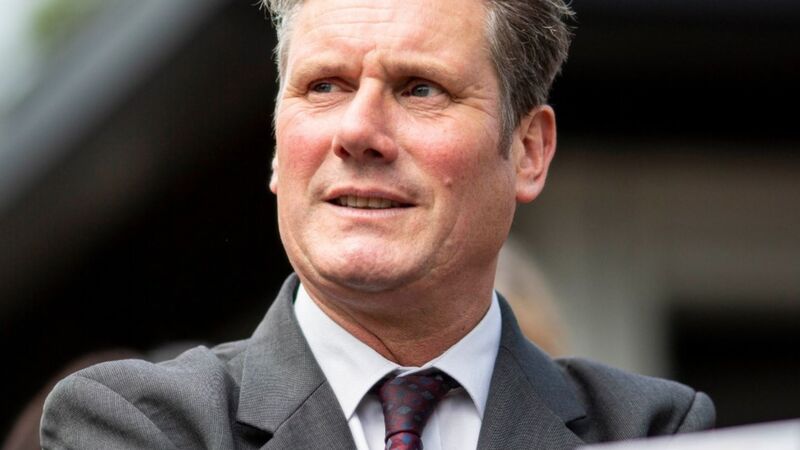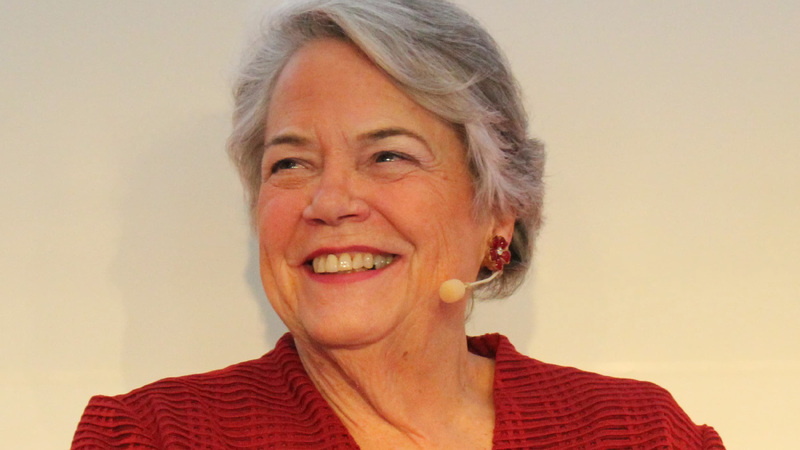You are viewing your 1 free article this month. Login to read more articles.
Brexit cloud on horizon for Irish booksellers
Irish booksellers are being pressured to sell more books at lower prices after currency fluctuations following the Brexit referendum sucked value out of the market, The Bookseller has been told.
While retailers are generally bullish about the prospects for physical books in the next few years—spurred on by a rise in fiction sales and the gloom around the economic crash dissipating—the dark cloud of Brexit is causing some anxiety. Ireland imports around 75% of its books from the UK, and the plunge in value of the pound last June following the European Union membership vote has forced some Irish booksellers to charge less for titles.
Eason’s new chief executive Liam Hanly told The Bookseller: “The challenge of Brexit is about the sterling value. The referendum result has taken all the value out of the market in the past 12 months.”
Janet Hawkins, owner of Blessington Book Store in County Wicklow, explained: “After the value of sterling dropped, a book that was £7.99 we could sell after the exchange rate for around €11, but now we have to sell it for around €9.99. We have to sell more books to keep the current value after Brexit. We don’t have any idea how Brexit is going to impact us. There is a lot of uncertainty.”
Maria Dickenson, m.d. of eight-chain store Dubray Books, warned that Brexit meant customers were being lured over the border into Northern Ireland to get cheaper goods.
“Irish consumers migrate when the pound is weak: the presence of sterling retailers in Northern Ireland is too tempting a draw for consumers who think nothing of driving for several hours to save on a weekly shop,” she wrote in a column for The Bookseller.
Any potential impact on tourism was also a concern for her, as the industry is “vital to the Irish economy and an important sales driver for many bookshops—the appeal of a Ryanair jaunt to Dublin diminishes for UK travellers now getting a lot less Guinness per pound,” she wrote.
Another concern in the country is that its zero rate of VAT on print books may be jeopardised by the UK leaving the EU. Frank Kelly, chair of Bookselling Ireland, said: “Both the UK and Ireland have a zero VAT rate for printed books, but no one else in the EU does. Currently we have the UK to support Ireland on that stance around the table. But once it leaves, we won’t.”
Despite the uncertainty around Brexit, retailers are feeling optimistic about the bookselling climate. Eason has just signed off on a three-year strategy that will see the retailer refocus on book product, invest a further €6m into store revamps, and pump €1m into relaunching its website.
In his first official interview at the helm of the 197-year-old retailer, Hanly revealed: “We are refocusing our core categories back on books and becoming an experience destination for book lovers.
“We are putting books at the centre of our online offering and front of store. We are also relaunching the website in quarter four [of 2017] to make it more aligned with our in-store offer.” Books sales through the chain in the first half of 2017 were up by 1%–2%, Hanly added. “From my perspective, as long as volumes are increasing, that’s ok. We have very little control over sterling,” he said.
James Daunt, m.d. of Waterstones, concurred that sales in Ireland were “very strong” both north and south of the border. The chain runs Hodges Figgis in Dublin, and operates Waterstones branches in Cork, Drogheda and Dublin in Ireland, as well as outlets Ballymena, Coleraine, Lisburn and Newry in Northern Ireland.
“Sterling’s depreciation favours Newry [owing to its proximity to the border with Ireland] but beyond that, it does not have an impact: I reckon prices are lower and volumes rise, both by not much, and the net consequence is minimal,” Daunt said. “Otherwise, we are lucky to have very good managers in place and they are running increasingly successful shops. It is them, not currency moves, that are driving the sales growth.”
He added: “Incidentally, Scotland and Ireland have been performing best for us this year... Perhaps the Celtic fringe is feeling less troubled at present.”


















